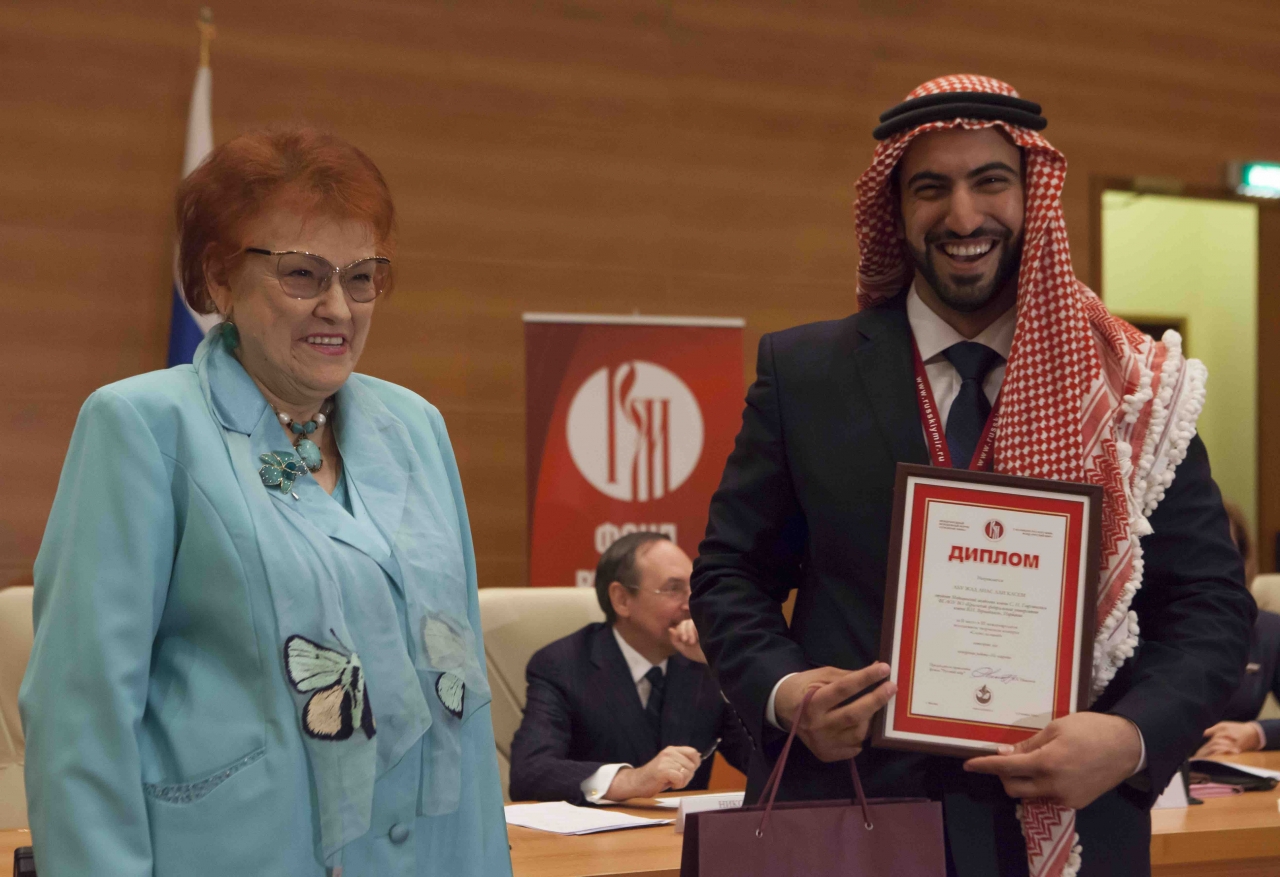Just a couple of years ago, a student from Iordania Abu Jad Anas Ali Kasemu did not know where Russia was and how the Russian alphabet looked like. Today, he speaks Russian fluently and writes in it well. He got the second prize for his essay at the International Youth Arts Contest “It is for us to decide!” (Slovo za Nami) organized by the Russkiy Mir Foundation.
– Your essay was named “Do No Harm”. Why did you choose this topic? What is so interesting about Russian for you and how are you going to use it in your future career?
– In my essay, I wrote about a language as an instrument of development of all the great civilizations. Russian language gives access to achievements of the world science. The contribution of Russian scientists into the world science is enormous. I understood it while studying at a medical academy. So, studying to get higher education in Russian is very prestigious and it contributes to our professional image. The main principle of medical ethics is "do no harm". A word is like a scalpel. One has to have a good command of it. One false move and that's it. Every doctor should remember about it and watch his or her own words in order to earn the patient's confidence and to honestly help every suffering person.
– A decision to create an Association of Youth and Students, Learning Russian was made at “Generation of the World” Youth Forum. What do you think, how can this organization be useful?
– Such an organisation would unite Russian-speaking young people from Russia and foreign countries, it would help foreign students of Russian higher education institutions solve problems, emerging on the way of spreading the Russian language and culture outside of the Russian Federation. In addition, creating such an organisation would contribute to promoting mutual understanding between representatives of different nations and cultures and developing cooperation between different countries.
– What stuck to your memory during the “Generation of the World” Youth Forum the most? What was the most interesting?
– A special feeling - I felt being a part of a big family united by the Russian language. It stuck the most.
– You are studying at the Crimean Federal University – why did you choose exactly this university? Is your future job going to be connected with Russia?
– Reputation of the Medical Academy n.a. Georgiyevskiy of Vernadsky Crimean Federal University is very high in my country. Moreover, famous scientists and doctors studied and taught at this university. And I knew that exactly this university had to be my first and main step in medicine.
Will my job be connected with Russia? It depends on many factors. I would be very glad to continue my studies in the Russian Federation, but as I do not earn money myself yet, I will not be able to pay for my studies. My parents gave an opportunity to get the best education in the world and I cannot endlessly abuse their generosity. If I had an opportunity to work in my degree field in order to live in Russia and pay for my residency training for 4 years, I would do so without any doubt.








